Now we are halfway through the five-year Obayashi Group Medium-Term Business Plan 2022.
Our independent directors share perspectives on progress and issues on strengthening the Group's business foundation and accelerating Company-wide transformation.
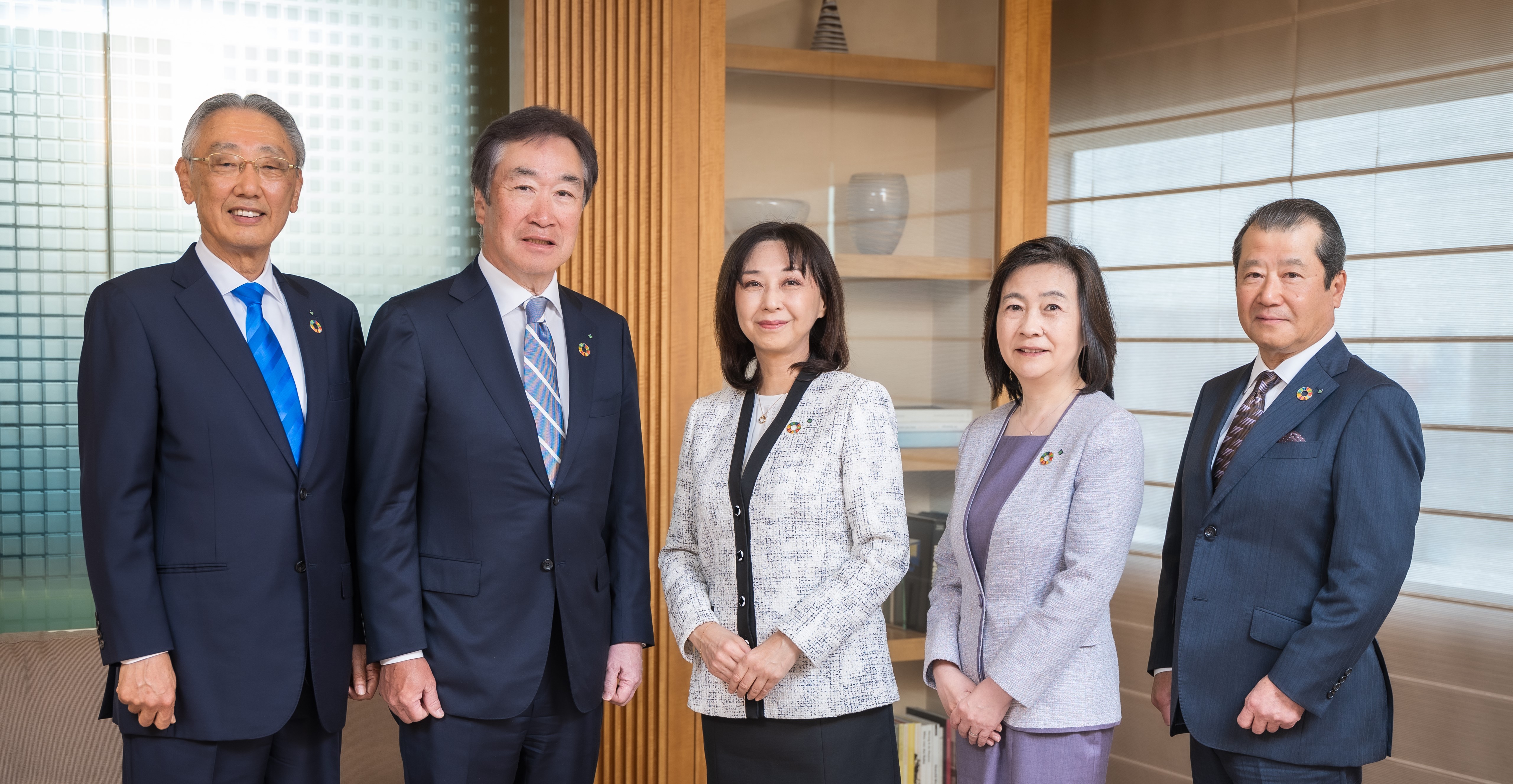
Independent Directors (from the left):
Hiroyuki Shime
Former representative director chairman of UNITIKA LTD. Became independent director of Obayashi Corporation in 2024.
Hiroyuki Kato
Former representative director, executive vice president and current advisor to MITSUI & CO., LTD. Became independent director of Obayashi Corporation in 2021.
Masako Orii
Served as senior managing director, member of the board of Suntory Wellness Limited, executive director of Suntory Foundation for the Arts. Became independent director of Obayashi Corporation in 2020.
Yukiko Kuroda
Worked previously for Sony Corporation. Founder and current advisor of People Focus Consulting Co., Ltd. Became independent director of Obayashi Corporation in 2022.
Yoshihiro Ikegawa
Served as representative corporate executive officer at Mitsubishi Chemical Holdings Corporation. Became independent director of Obayashi Corporation in 2024.
Kato The Obayashi Group Board of Directors features a majority of independent directors, with advisory bodies such as the Recommendation Committee and Remuneration Committee mirroring that balance. The Group's system is relatively advanced among Japanese companies, and I feel a high level of transparency is ensured.
Orii I feel that the operation of a multi-layered governance structure, centered around the Board of Directors and supported by the Directors' Roundtable Meeting and various committees, has helped to steadily advance governance for the Company as a whole. I sense that repeated discussion has helped establish the specific roles and positions of each body, which, in turn has encouraged effective discussion.
Kuroda Obayashi reached a key juncture with the appointment of the new president and CEO in April 2025. I think the frank exchange of views throughout the selection process during FY2024 in the Recommendation Committee and Remuneration Committee warrants special mention.
Shime During the time leading up to the change of president and CEO, the Recommendation Committee monitored the training of successor candidates and selected a successor through transparent processes. Obayashi needs to focus even more on developing next-generation talent responsible for the Group's future management.
Ikegawa Under the new management team, Obayashi needs to have deeper discussions on various managerial measures. These include the introduction of a chief officer (CxO) system to help accelerate business execution and clarify responsibilities, the establishment of personnel evaluation frameworks that boost motivation among executive officers, and the setting of key performance indicators (KPIs) that facilitate the pursuit of both sustainability objectives and improved business profitability.
Kuroda The Board of Directors was found to be functioning better in the FY2024 effectiveness evaluation, and one of the contributing factors was the Directors' Roundtable Meeting. The Directors' Roundtable Meeting was established in 2022, the same year I was appointed as an Obayashi Corporation director. It is a good venue for discussing ideas before they are fully formulated on the executive side, and reconciling the ideas of the business execution and management sides from a medium- to long-term perspective through frank discussion.
Orii In addition to the implementation of a new capital policy announced in March 2024, human and intellectual capital were discussed at Directors' Roundtable Meeting in FY2024. These factors are intricately related to medium- to long-term enhancement of corporate value, and I would like to see more such discussions going forward.
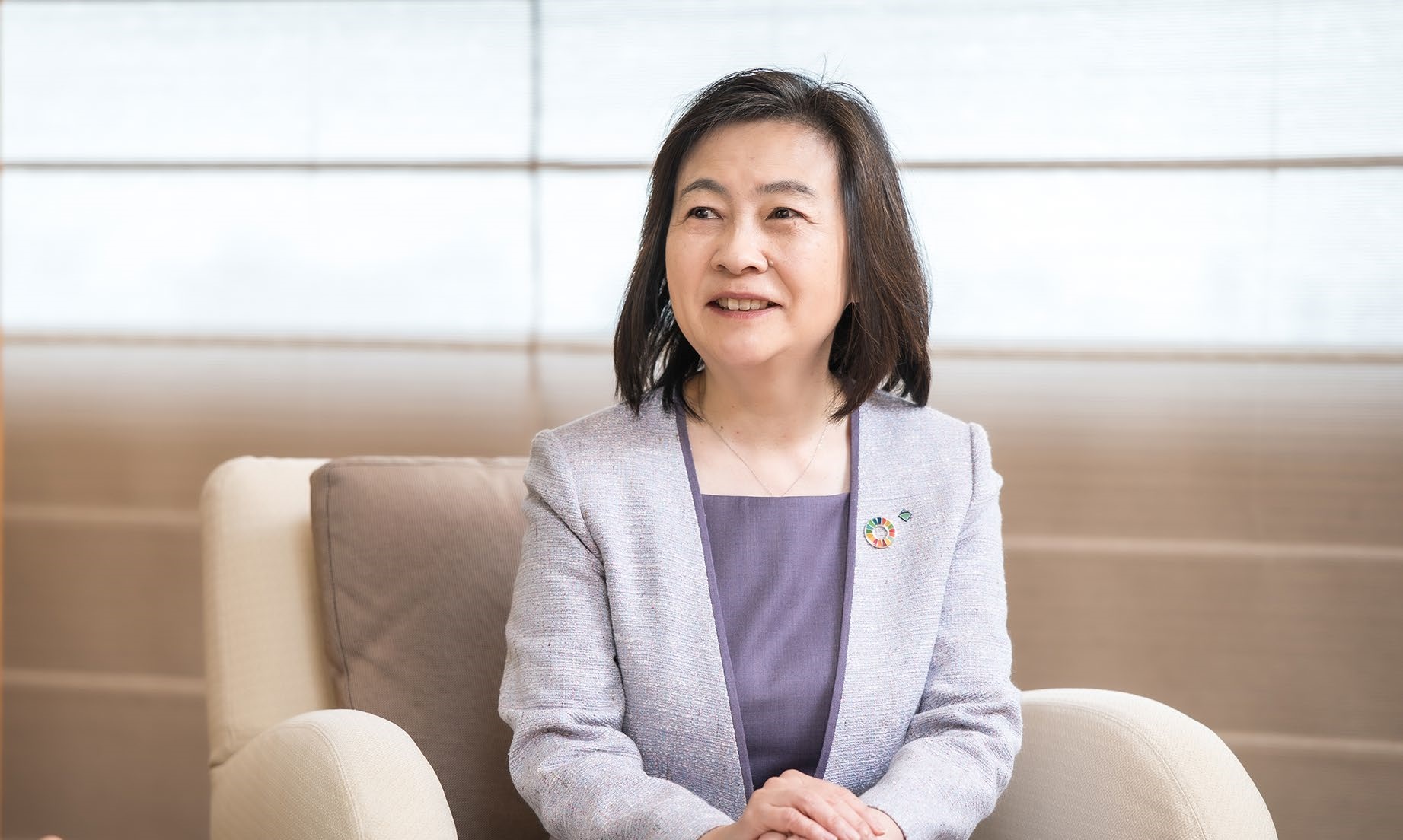
Kato The Directors' Roundtable Meeting complements the Board of Directors by deepening the discussion. But it comes with its own set of challenges. Right now, various topics are being discussed in the Directors' Roundtable Meeting, but I believe it would be good to handle more agenda items in the Board of Directors. It can be difficult to declare which topics should be dealt with by the Board of Directors and which by the Directors' Roundtable Meeting. I believe it would be preferable for the Directors' Roundtable Meeting to focus, for example, on broader themes that require a medium- to long-term approach and more in-depth discussion, such as the formulation of the next medium-term business plan and the shaping of ideal business portfolios, rather than specific individual matters.
Orii As stated anew at the top of the fundamental strategy of the addendum to Medium-Term Business Plan 2022, which was announced in May 2024, ensuring safety and quality continues to be a top management priority for the Obayashi Group. While various frontline measures have already been taken, I would like to see more substantial discussions on issues such as linking safety and quality to organizational culture, human resources, technology, supply chains, and other Company-wide issues. The addendum clearly states the Obayashi Group's intention to achieve sustainable growth by "establishing a Group-wide business structure centered on the domestic construction business and in which other businesses generate performance equal to or greater than that of the domestic construction business." This is extremely significant. Based on the ideal business portfolio, the immediate challenge is to evaluate business strategies in domains including M&A, the real estate development business, the green energy business, and new business initiatives collectively rather than individually. I think carbon neutrality and well-being should be declared as keys to value creation for Group-wide business development that incorporates the core domestic construction business. Deeper discussion on future growth strategies is also required.
Shime Obayashi can expect stable orders for the core domestic construction business fueled by predicted demand for reconstruction and infrastructure renewal over the medium to long term. The overseas construction business is also generating steady results, and a stable earnings base can be nurtured by focusing on human resource development and structural enhancement going forward. I also believe that by accelerating investment in green energy, which is attracting global attention, and in growth areas such as data centers, Obayashi can develop those businesses into future earnings pillars. This will help achieve sustainable growth.
Kuroda The Board of Directors spends a considerable amount of time discussing how to best expand areas outside the domestic construction business. Evaluation of such new areas should, of course, be based on return on invested capital (ROIC) and other profitability indicators. But focus should also be placed on non-financial factors such as possible synergies with core businesses, whether Obayashi's strengths can be leveraged, and whether talent capable of advancing business in these new areas can be secured. It is essential to constantly question whether Obayashi can be a “best owner” in a particular business.
Ikegawa When discussing portfolio strategy, Obayashi needs to comprehensively discuss the selection of priority investment domains and the formulation of regional strategies based on market growth potential. In doing so, Obayashi must take various aspects into account, including financial resources, business promotion and technical capabilities, and time horizons. In addition to selecting new business opportunities based on the policies set out in Obayashi Sustainability Vision 2050, it is also essential to address the need for qualitative change in existing construction businesses. With regard to its regional strategies, Obayashi should consider more deeply how to expand business in regions such as North America, Thailand, and Singapore where it already has a presence, and how to develop business in new markets. M&A targets should also be selected under this comprehensive strategy. Regarding investment criteria, Obayashi needs to adhere to a disciplined policy that demands sale or withdrawal for businesses that are not expected to generate profits exceeding the cost of capital.
Kuroda Strengthening governance frameworks on the global level and across Group companies is becoming an increasingly urgent issue as the Group expands its business reach.
Kato I agree. Determining how to increase overall Group profitability on a global scale will be a central issue in any future growth strategy. Moreover, establishing appropriate governance structures at consolidated subsidiaries, and subsidiaries outside Japan in particular, is a major current management issue. For those structures to function properly, Obayashi needs to secure leaders of the future who can immerse themselves in the management of local subsidiaries as board members and maintain a grip on the business. This will undoubtedly influence future growth. In fact, I believe that training management talent to steer future strategy is the key to ensuring further Group growth.
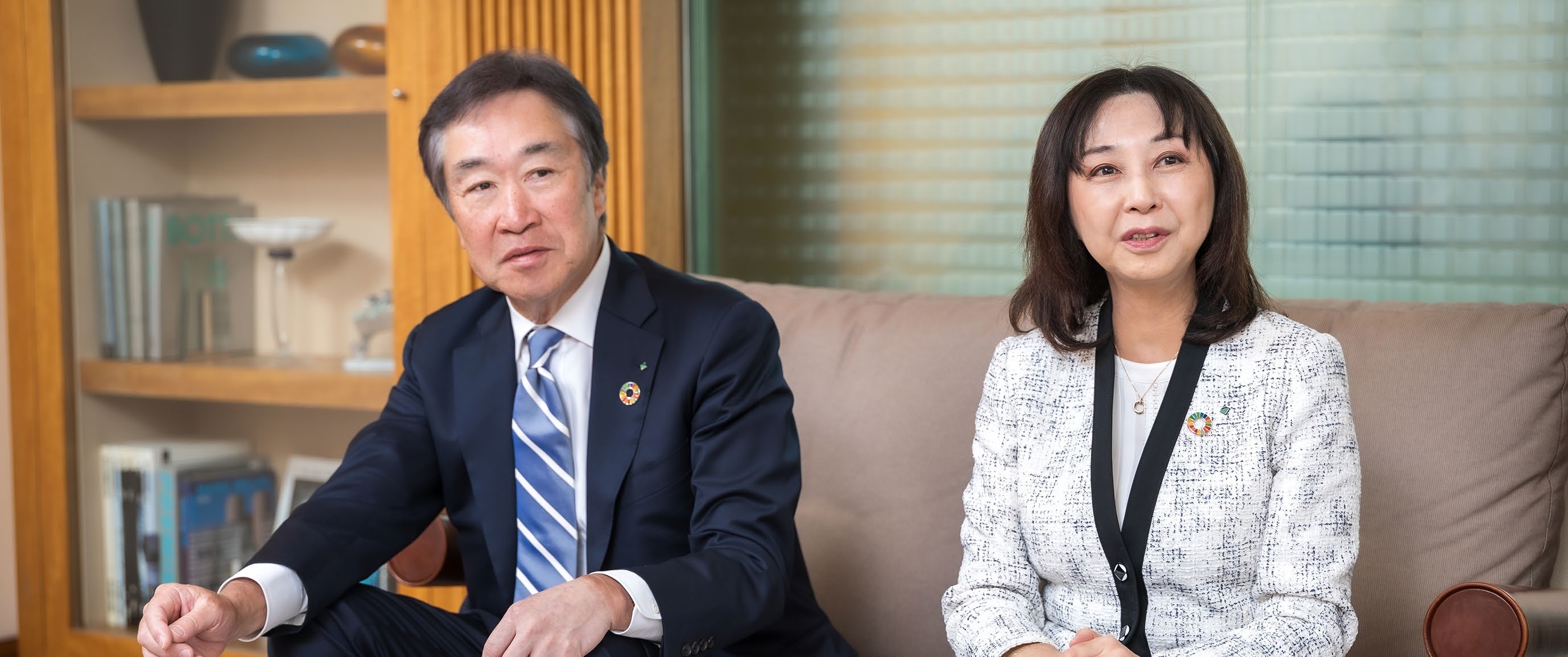
Kato It goes without saying, but Obayashi's construction business sits at the heart of the Group and has accumulated a steady track record. Orders in the Japanese market are currently fairly buoyant. However, Obayashi must not become complacent and should focus on strengthening global profitability for the entire Group. Are the current overseas construction business, real estate development business, and green energy business domains the best for Obayashi? What portfolio would be the most appropriate? How should global governance be strengthened across the Group? These issues need to be discussed in the run-up to the formulation of the next medium-term plan.
Shime I agree with Mr. Kato. I also believe that strengthening governance is a key role that board members should be involved in. At board meetings and other gatherings, independent directors must offer varied advice and proposals from an independent standpoint that help improve corporate value. We have a bird's eye view of the management team's decision-making process, and we should constantly question our own stance to ensure that we are fulfilling our supervisory and control functions in an appropriate manner.
Orii We are exposed to the sheer scale, speed, and complexity of changes in the business environment and are expected to accurately grasp the significance of those changes both in terms of potential risks and opportunities, and to respond accordingly. In such an environment, it is important to reaffirm the Group's basic principles and vision, and to unwaveringly pursue the path toward sustainable growth. Personally, I have gained a real sense of the high-level technical capabilities and the strength and richness of the Group's human resources through on-site inspections and exchanges with employees. I want to help the Group create value by further leveraging the great strengths that it has cultivated, and to help accurately communicate those strengths and their value to society at large.
Ikegawa The sustainable growth of financial value is essential for enhancing corporate value. As independent directors, our role is to objectively examine the business strategies devised and implemented by the executive team to ascertain whether they dovetail with Obayashi's vision and values, meet the expectations and demands of society, or harbor any potential risks. In addition to financial value, we should also look at non-financial value including human capital and technical capabilities. Another important role is to discuss with the executive team how to most effectively communicate this value to investors and all other stakeholders.
Kuroda As Mr. Ikegawa said, I want to voice more opinions on non-financial value, which is an important issue for improving corporate value over the medium to long term. In addition to issues such as improving productivity to counter labor shortages, reskilling employees, and promoting diversity, the key question is how to successfully translate social demands on issues such as decarbonization and circular economies into business opportunities. I want to link such initiatives more organically and provide support from an independent perspective on how to communicate these ideas externally.
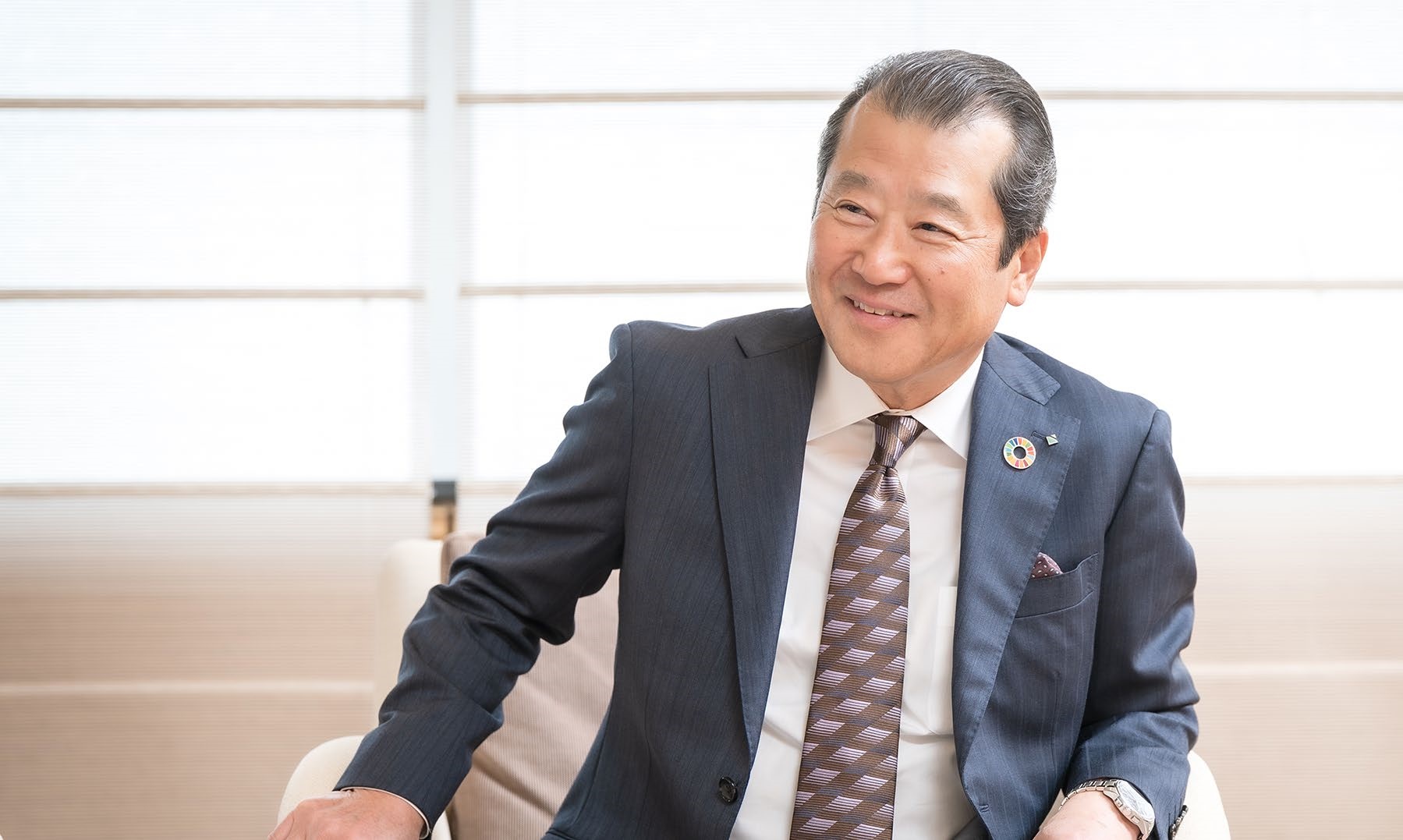
Orii I have always been conscious of my role as an independent director in curbing any insular tendencies and instead encouraging company to be more open. Today, various changes continue to come thick and fast. In such an era, I want to increase Obayashi's attentiveness to shareholder, investor and other stakeholder expectations and to accurately grasp those expectations as Obayashi steadily implements the growth strategies set out in the addendum to medium-term plan. In discussions on the new capital policy announced in May 2024, I stated that balancing shareholder returns and growth investments was a key issue. I will continue to help Obayashi pursue a balanced capital policy that considers both short-term developments and medium- to long-term prospects.
Ikegawa The Group has contributed significantly to society over many years through its building construction and infrastructure development projects both inside and outside Japan. The Group has strengthened shareholder returns and its capital policy as it implements the addendum to medium-term plan, and it is already seeing an improvement in return on equity (ROE) and price-to-book ratio (PBR). As independent directors, we will continue to focus on the balance between shareholder returns and sustainable growth strategies while also encouraging the Group to improve the profitability and expand the market presence of businesses that tackle social issues. In addition to discussing business portfolio strategies, we will also discuss with the executive team measures to improve non-financial value, such as enhancing governance, strengthening human capital, and promoting diversity from multiple perspectives, and ensure those discussions are reflected in relevant measures. Part of that process involves engaging in dialogue with shareholders and investors; we will take their opinions seriously as we help to increase corporate value.
Kuroda The role of an independent director is to objectively supervise management so that Obayashi can improve its corporate value. To that end, we strive to supervise activities with a focus on ensuring that capital efficiency is optimized, a growth story for the future is clearly defined, and appropriate investment decisions are made.
Shime It is my duty to appropriately discharge my management supervisory and advisory functions as an independent director with the aim of helping achieve sustainable growth and increased corporate value over the medium to long term. In particular, I monitor the progress of measures indicated in the addendum to medium-term plan, closely following the feasibility of M&A and strategic investment projects and confirming how relevant risks are being addressed. Finally, I believe another important role for independent directors is to serve as a bridge between Obayashi's management and the broader market by encouraging engagement, and to help build relationships of trust with shareholders and investors.
Kato FY2024 proved to be a strong year, with revenue outstripping expectations. This was thanks to the efforts of the executive side, but there is room for further improvement. As independent directors, we are tasked with appropriately monitoring executive efforts and pushing for improvements through Board meetings and other gatherings as representatives of shareholders, employees, and other stakeholders. In that respect, it is a good idea to constantly create opportunities to attentively heed stakeholder opinion in a variety of settings, not just the Ordinary General Meeting of Shareholders. We should always strive to develop ever closer relationships with stakeholders, and we must also carefully consider how to convey the concerns and expectations of independent directors more actively.
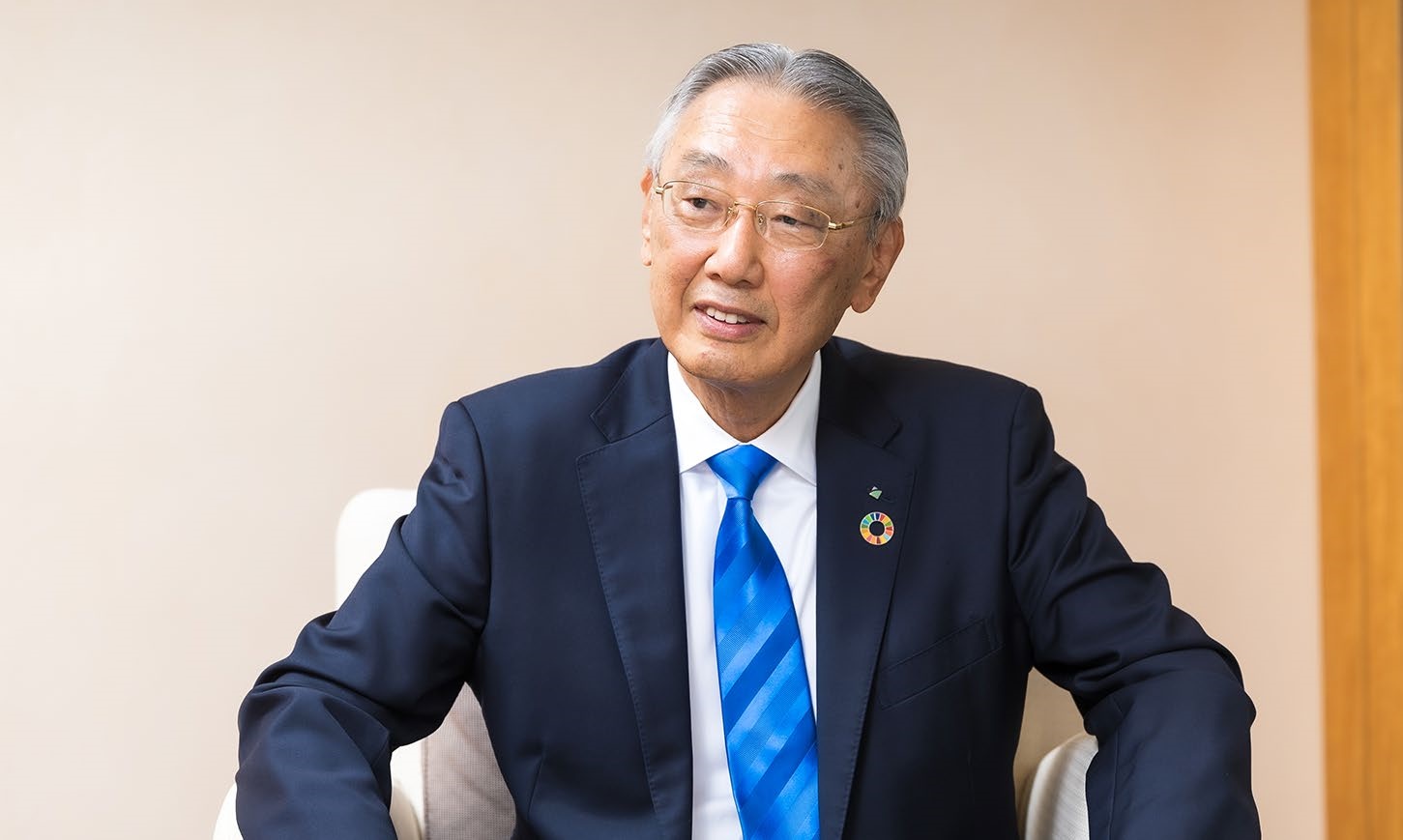
October 2025

